By Maria Giovanna Vagenas
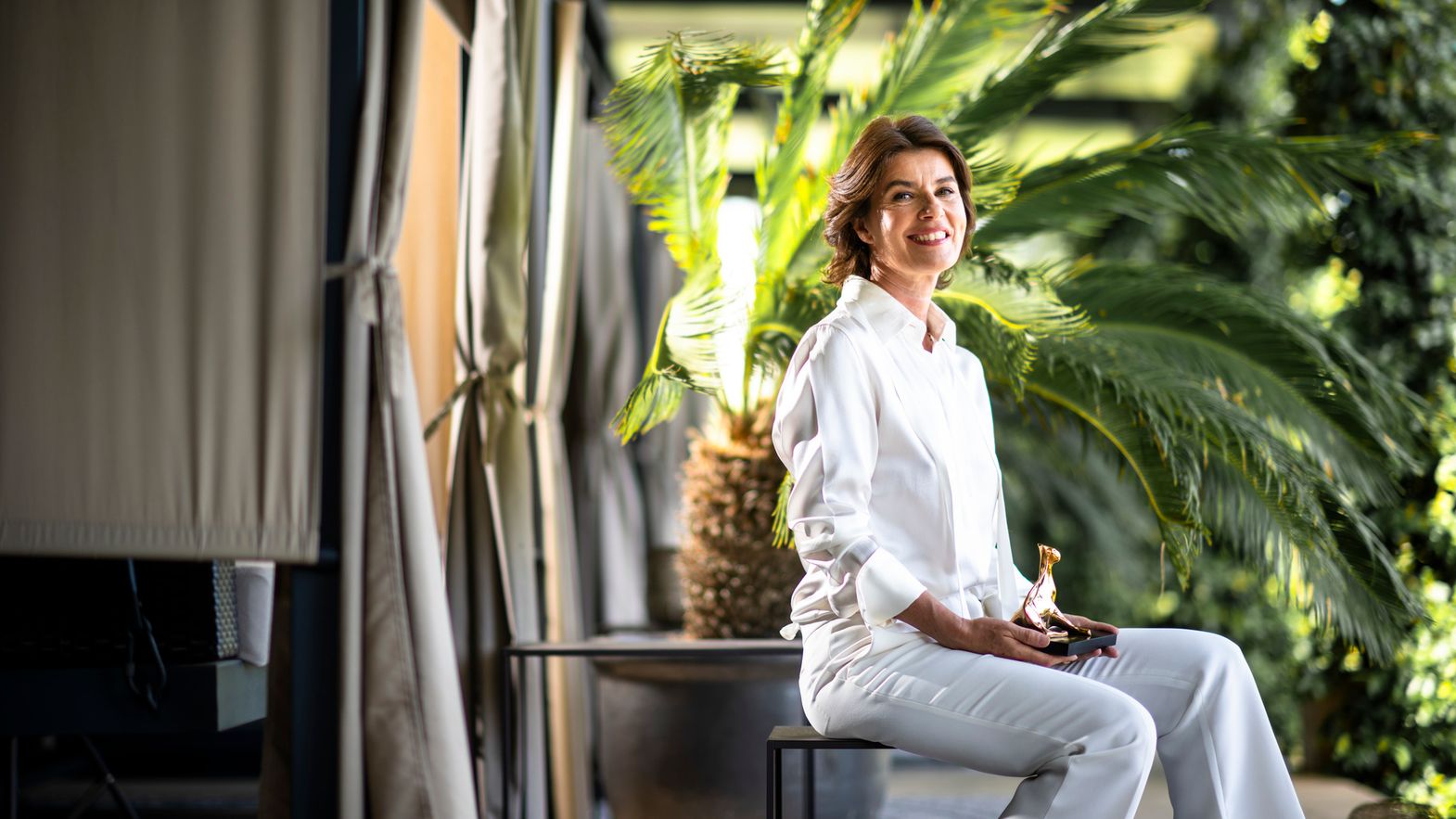 ©Locarno Film Festival
©Locarno Film Festival
Actor, singer, musician, writer, author and playwright; president of the prestigious Institut Lumière and godmother of the Paris Cité University’s APC astrophysics laboratory; mother to Paul and Samuel Kircher, two promising actors. Irène Jacob’s extraordinary artistic and personal journey is one that simply must evoke great admiration. With her intense gaze, one only has to see her once to never forget her face, while her unique tone of voice is capable of touching us deeply. She announced herself on the world cinema stage with her star turn in Kryzysztof Kieślowski’s The Double Life of Veronique (La double vie de Véronique, 1991), for which she was awarded Best Actress at Cannes, making her world-famous at just 25 years old.
Since then, Jacob has channeled her immense talent into the pursuit of art, working with many of the great names of cinema across Europe and the Unites States, seeking out new challenges as her credits multiply. In person, her grace and generosity are disarming: the experience and sensibility with which she approaches every aspect of her work make each conversation unique, unforgettable. During our meeting, we retraced the key milestones of her career and discussed what being an actor means to her.
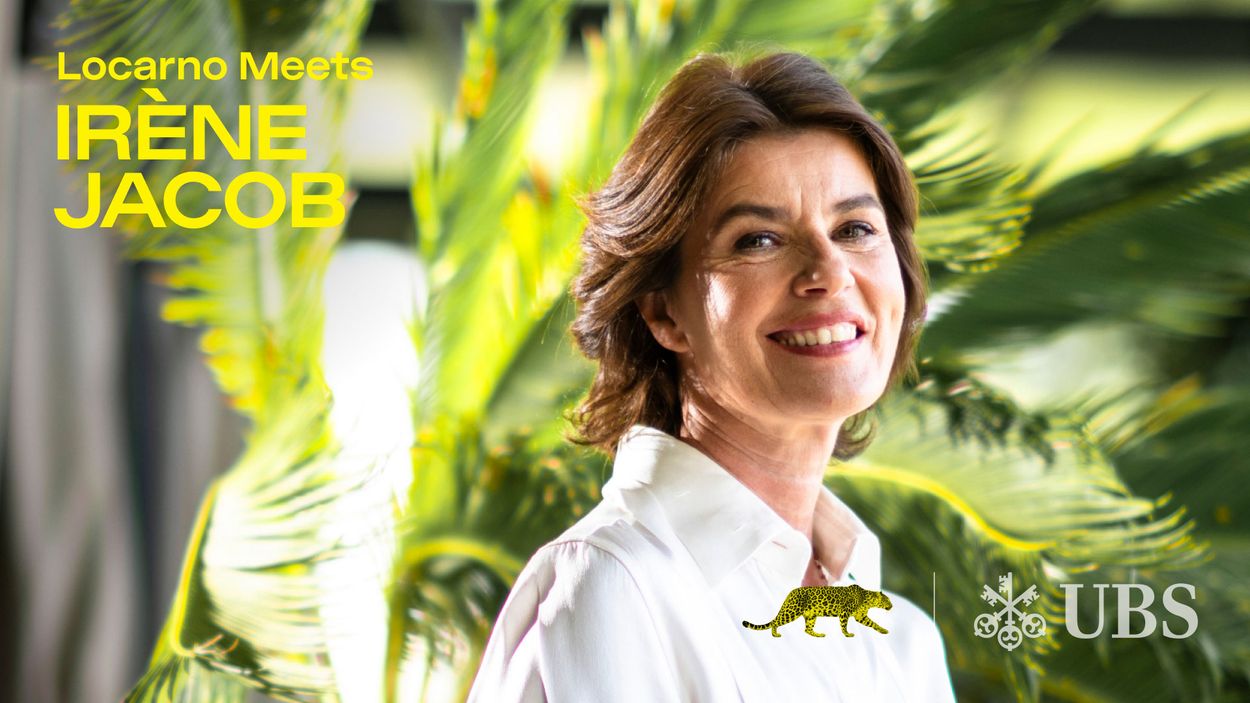
Maria Giovanna Vagenas: The year 2024 is shaping up to be a great one in your career. You played a leading role in both Amos Gitai's Shikun and Rithy Pahn’s Rendez-vous avec Pol Pot, recently shown at Cannes. Could you tell me more about these projects?
Irène Jacob: Certainly. Rithy Panh was very excited to be back in Cannes – it’s an important showcase for a film with a daring, personal artistic approach. Rendez-vous avec Pol Pot is a true story, based on the book by Elizabeth Becker, an American war correspondent, one of a very few journalists chosen to cover the Cambodian revolution in 1978. Rithy Panth and Becker, who had known each other for a long time, were both eager to bring this story to the screen. In the film, there are three French protagonists: a journalist, played by me, a photographer, and a revolutionary-minded intellectual. Each accepted the regime’s invitation to visit the country. The propaganda is immediately out in the open and everything is evidently fabricated. How can you bear witness in a place where everything is designed to prevent you from seeing anything at all? Genocide also involves silence; you see and hear nothing. This is the core of the film. Shooting in Cambodia was heart-rending because there are still many open wounds in the story we wanted to tell. So as not to offend the spirits by our recollecting, we had to offer them a boiled chicken each week. In such a situation, you’re not just concerned with your performance, you’re also trying to get a feel for the world around you. I had to be open and receptive, with all my senses, body, and emotions engaged.
MGV: In Shikun, you play all of the roles in Eugène Ionesco’s play Rhinoceros. How did you approach that very complex task?
IJ: Amos Gitai gave me a lot of freedom. He asked me to prepare excerpts from the play, which I did, but nobody knew how or where the shoot would take place. Shikun was made instinctively and in a very short time, but for Amos Gitai, this is irrelevant – because his work is inspired by a thinking and commitment that goes back 50 years. Before the shoot, I told him we’d need an actor to play the other roles in the Rhinoceros, and he said, “No, you're doing it all on your own, because schizophrenia begins within oneself!” Shikun is actually a parable about the rise of totalitarianism and we shot it in Israel during the 2023 protests against the controversial judicial reform by Netanyahu’s government. It was pure chance that the film opened in cinemas after October 7th and the start of the war in Gaza, but it already bore the hallmarks of all that happened. It felt strange to show it [in Berlin] when the conflict was at its peak, so we asked Amos if it would be better to date the film more specifically. But to that he simply replied, “You can't put dates on films; they must be timeless. They are created in a specific moment, but that moment contains the seeds of the past and the future as well.” It is critical for him to collaborate with people from various cultures, to break down barriers, incorporate multiple languages, and be open to plurality.
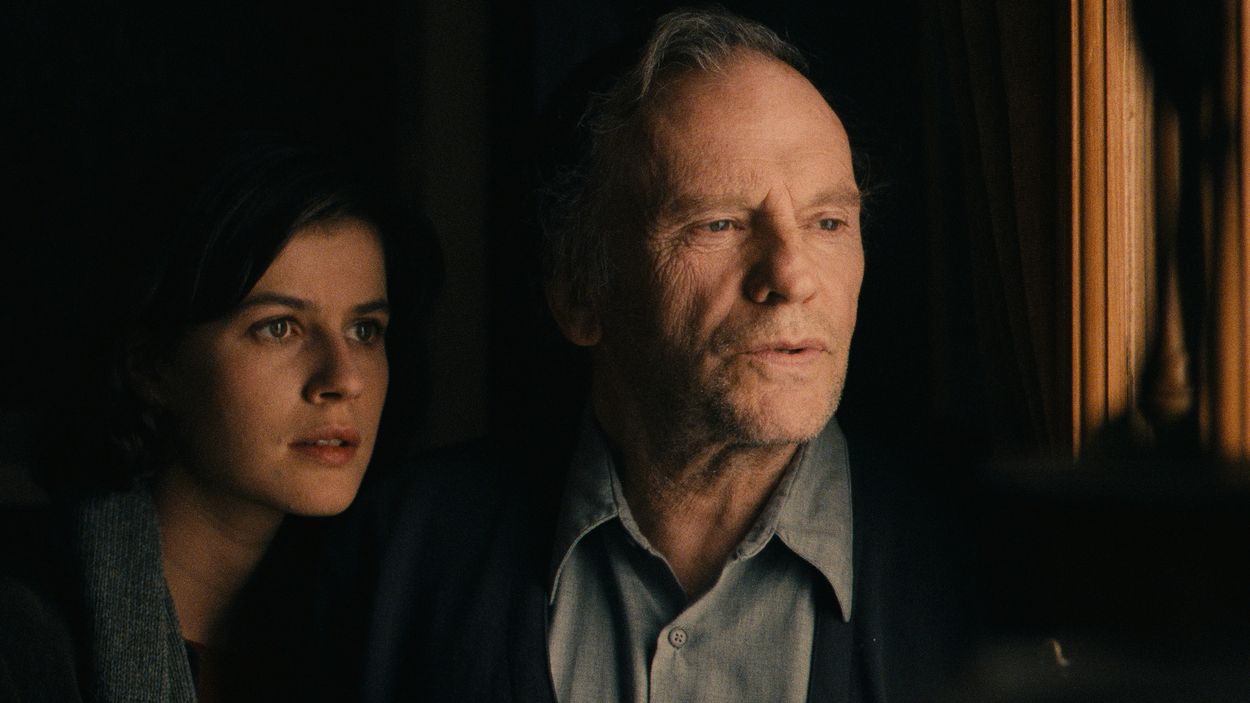 ©MK2
©MK2
MGV: Looking back on your career, Krzysztof Kieślowski’s La double vie de Véronique (1991), for which you won Best Actress at Cannes, has kept all its grace and mystery over time.
IJ: Yes, it’s wonderful to see that these films have transcended borders and time and are still very relevant. When I travel around the world for film or theater – whether it’s Mexico City, Rio de Janeiro, or Tokyo – I'm frequently asked to present that film or Kieślowski’s Trois Couleurs: Rouge (1994), which – even though it’s odd for me personally to hark back to those days – I do readily, because there’s a lot to be said about how Polish cinema was operating at the time. Kieślowski liked to shoot with only a few takes but many angles, and he really enjoyed editing, so his films were heavily edited afterwards. On set, he knew how to listen to everyone and then organize all the different proposals, resulting in an amazing musical partition, so to speak. He approached shooting as a collaborative effort with his cinematographers; they were constantly exchanging ideas. He enjoyed creating new sensations, giving viewers images they'd never seen before, such as the landscape shot through a glass ball in Véronique. Working with him on these two films left an everlasting mark on me, perhaps because of the compassionate way he addressed both the mystery of human beings and the mystery of life itself.
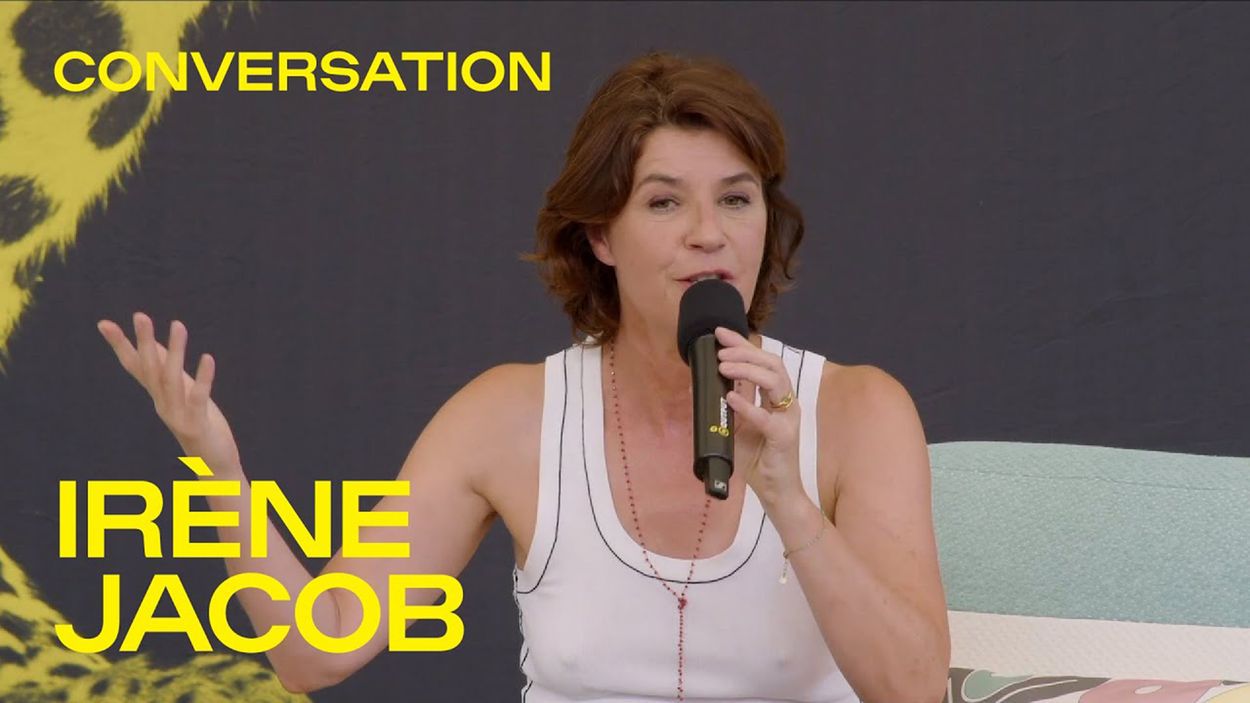
MGV: Music has always been important to you as a performer. After graduating from the Conservatory of Geneva, you went on to sing or play music in a variety of projects over the years. What does music mean to you?
IJ: I've often said that I got into cinema through the piano, because my very first role – in Louis Malle’s Au revoir, les enfants (1987) – was the catalyst for everything. They were looking for an actress who could play Saint-Saëns’ Rondo Capriccioso, which is a quite challenging piece. I auditioned because I could play the piano, and I was selected. This film really opened all the doors for me in the beginning, allowing me to meet Kieslowski and other people in the film world.
In Véronique, I played a singer, and I had to take singing lessons to prepare for it. Afterwards, I was offered a number of roles in operas, such as Perséphone by Igor Stravinsky and Joan of Arc at the Stake by Arthur Honegger, as well as acting jobs in works where music has a major role. In any case, I enjoy working with music whenever possible, whether in theater or film. I’m currently performing with singer-musician Keren Ann in a theater piece called Où est-tu? which features poems, songs, and stories that we wrote ourselves. It’s also true that when I’m preparing for a role, I enjoy listening to music. Choosing the music I want to listen to in the morning and have with me throughout the day helps me at work. In general, music has a great impact on actors because it travels through the body and immediately transports us to a different world with a new energy.
It’s wonderful to see that these films have transcended borders and time and are still very relevant.
MGV: I’d be interested to know what inspired you, as a young girl, to choose this path?
IJ: I think people often ask themselves, “How did I get into this?” There are always reasons, even if they’re not obvious. When I was a child, I didn’t go to the movies or theater very often, and we didn’t have television at home. Because my father was a physicist and worked at CERN, I grew up in Switzerland near the facility. My mother was a psychologist and enjoyed music. We didn't have much of a theatrical background at home, but we did enjoy reading prose and poetry, and when I was young, I loved reciting texts aloud and impersonating members of my family, like my grandmother, at family gatherings. I was acting all the time – the way kids do. Being a part of a story, and telling a story, has always captivated me. When I was a teenager, I joined a theater group where we created our own plays; later, I was offered a job in television in Switzerland. Finally, when I turned 18, I traveled to Paris to attend the national theater school, La Rue Blanche.
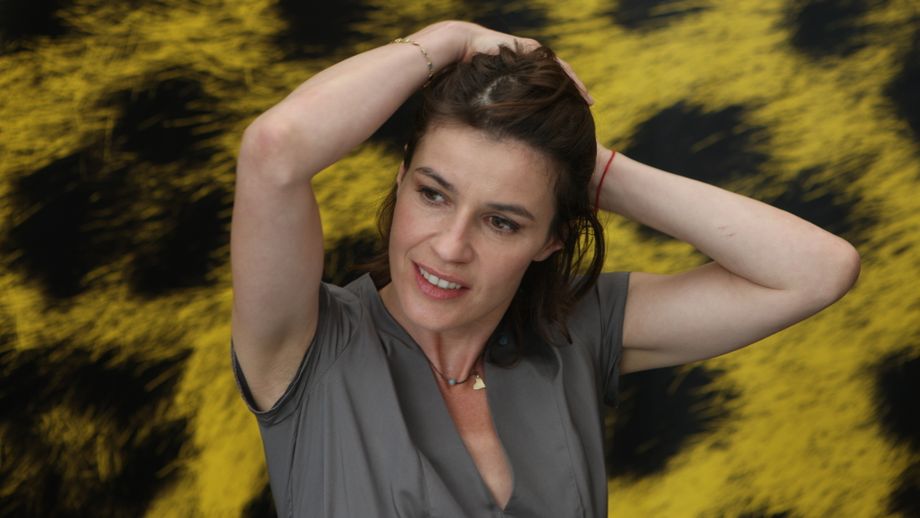
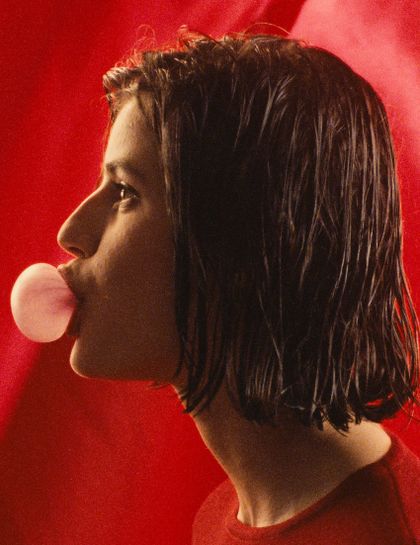
MGV: There are over 60 films in your filmography, and the names of the directors with whom you’ve collaborated is mind-blowing. Two great masters stand out, however: Michelangelo Antonioni and Theo Angelopoulos. What do you remember about working with them?
IJ: Meeting Antonioni on the set of Beyond the Clouds (1995) was a profoundly moving experience. He had seen Rouge, which is why he asked me to work with him. It was an exceptional adventure because this man, who had suffered a stroke, was severely limited in his movements but still had all his ideas and passion for cinema. Wim Wenders was also there to assist Antonioni and help the insurers finance the film – even if he had only been able to move one eyelid, Wenders and his wife Enrica would have done everything they could to help him make this film. During the shoot, I got to witness his legendary sequence shots. Antonioni filmed like no other director, he just focused on what he intended to edit later. All of Antonioni's films were made with these sequence shots, there was no editing; all that was left to be done was put them end to end, which is truly unique.
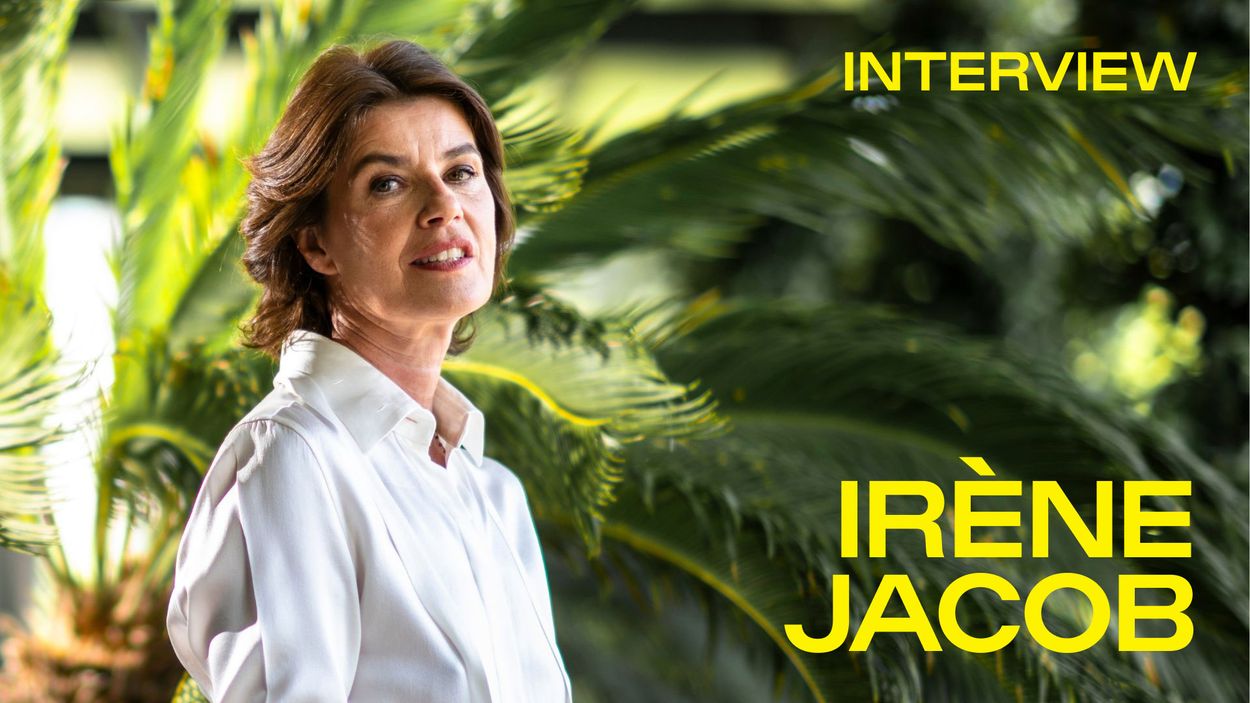
MGV: And what was it like working with Angelopoulos on The Dust of Time (2008)?
IJ: It was the second part in a trilogy that began in 2004, with The Weeping Meadow – but his untimely death prevented him from completing it, sadly. The trilogy is about the painful 20th-century history of dictatorship and communism in his country, which he held dear. The Dust of Time in particular had exceptional actors, including Piccoli, Bruno Ganz, Willem Dafoe... I played Eleni, the protagonist's mother, and had to age from 18 to 80. In this film, I think Angelopoulos was torn between creating a historical fresco, his usual approach, or delving deeper into the individual characters. Let's just say that he wasn't always paying close attention to the acting in this film, despite the fact that we felt like we were part of some incredible sequence shots. A statue would fall, a tram would pass by, a crowd would move – everything was perfectly timed, like an orchestra playing. It was Antonioni, actually, who inspired him to use the sequence shot, which he would continue to do in his films, but in a very different way. While Antonioni used it to tell intimate tales, Angelopoulos used it to create his historical frescos. However, I don't think The Dust of Time is his most memorable film.
Antonioni filmed like no other director, he just focused on what he intended to edit later.
MGV: A recent MoMA retrospective dedicated to the director Illkka Järvi-Laturi contributed to the rediscovery of a film in which you had a leading role: in History is Made at Night (aka Spy Games) (1999), written by Patrick Amos and Jean-Pierre Gorin, you star as a young, ambitious KGB recruit, alongside Bill Pullman. I think it has the makings of a cult film; could you tell me more about it?
IJ: I must admit, I haven’t seen it in a long time. Ilkka made a very beautiful, somewhat experimental first film, but I think there are a lot of competing ambitions in Spy Games; on the one hand, he wanted to make a spy movie, but he also wanted to keep his own artistic touch. I'm not sure that the film was totally successful in the end. At the time, there were a lot of European films – they were called “Euro projects” – being made with multiple nationalities; there were Germans, French, English, and Americans, and everyone was obviously very excited about the prospect of working together, but the results were sometimes films with a blurred identity, like this one.
MGV: Among your many offscreen duties, you’ve served as President of the Institut Lumière in Lyon since 2021. Could you talk a bit about what that entails?
IJ: I was very touched when I was asked to take over the presidency of the Institut. I succeeded Bertrand Tavernier, who was its founder and president for 40 years. For me, it's a fascinating adventure in the transmission of cinephilia, supported by an amazing team – whose director is Thierry Frémaux. The Institut Lumière includes the Lumière brothers' museum and an important film archive, and has also taken over three of Lyon’s art-house cinemas. They run a festival too, which works hard at involving the public – films are always presented by someone who makes the connection between the history and the current state of cinema.
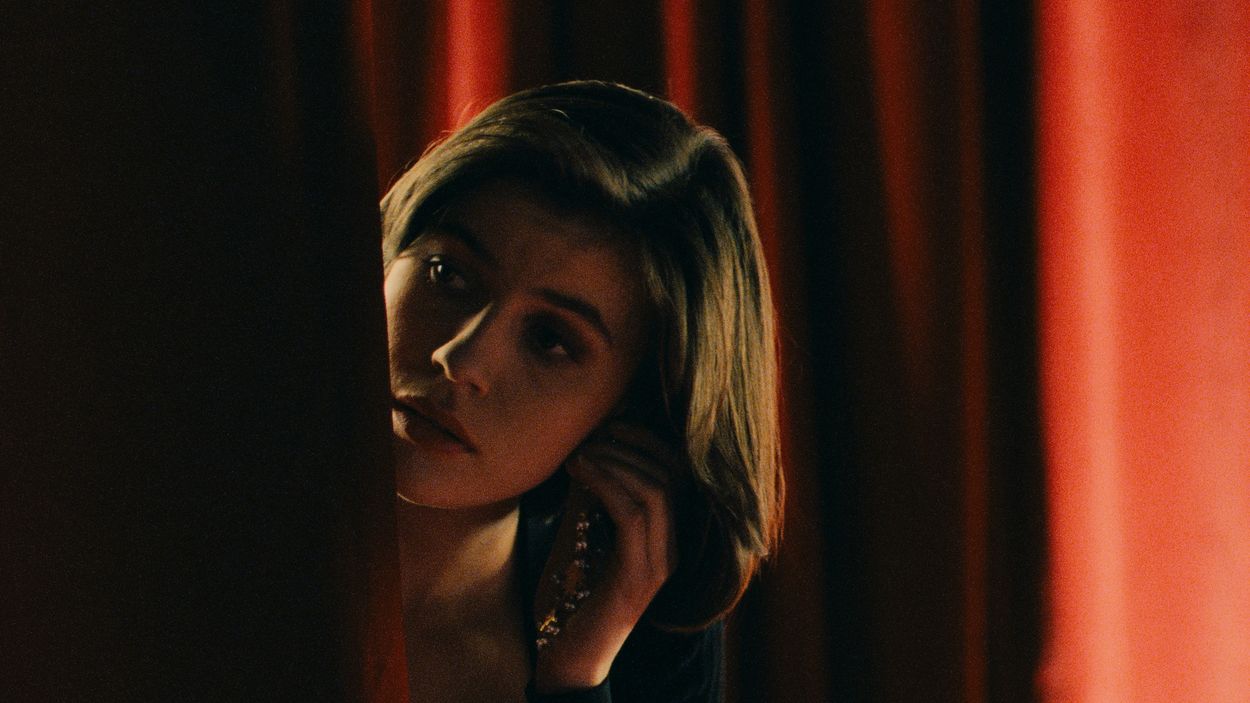 ©MK2
©MK2
MGV: As you look back on all these years of work, is there something – a particular memory; a feeling – that you'd like to share?
IJ: When I started acting professionally, I dreamed of being able to do it for as long as possible; in other words, to continue and evolve. It's a real challenge because, obviously, you make a name for yourself when you're 20, and then you're 30, and you have to tell another story about the person you are at 30, and then the person you are at 40. It's also a balancing act with your personal life, because you have to figure out where and how you want to live, and with whom; you have to deal with all these things simultaneously. And then you're 50, 60, 70, and you have to keep going, and you hope to be able to work until you're 80 – because I believe that working as long as possible makes you happy. When I see actresses like Judith Magre, who are still on stage at 90, I realize how much it helps them stay in shape. When you love your job, you want to keep doing it. On the other hand, discontinuity is part of the actor's craft, which means that after every break, you have to know how to get back into the game.
MGV: How did you build such an exceptional career?
IJ: I'm not sure I can call it a big career, but it's always a journey that begins with the desires you express and continues with the encounters you have and the projects proposed to you. People often ask me, “Which director would you like to work with?” I can think of a number of directors that I'd like to collaborate with, like the Dardennes Brothers, but never have. But the way things happen is, all of a sudden, I'll be introduced to someone I've never met, and it’s a powerful encounter. So, I think we have to define our desires, refresh them, and then stay open to the various things that come our way. In the theater world as well, I've received some very exciting proposals: Thomas Ostermeier asked me to work with him on Retour à Reims and Katie Michell on La Voix Humaine. I never would have imagined working with Louis Malle, Krysztof Kieślowski, Antonioni, or Amos Gitai or Rithy Panh. I keep asking myself, “How did that happen? Where did it come from?” I really don’t know.
Films are always presented by someone who makes the connection between the history and the current state of cinema.
MGV: How would you define your acting style?
IJ: Acting is an extremely personal profession. Kieślowski told me right away: “The Double Life of Véronique is a poetic film that doesn't say much about things directly related to the action. I really need you to give something of yourself in this film, because otherwise it won't be alive, it will be pretentious, and you won't touch anyone!” This is what schools like the Actors Studio and Stanislavsky are all about: learning how to tap into feelings and explore the emotional baggage that is our instrument. It’s an instinctive approach, and everyone handles it differently, but it’s crucial for an actor to enjoy playing with emotions. You also have to learn to work with a variety of directors, and each one helps you see yourself in a new light.
MGV: Finally, what does being an actor mean to you?
IJ: Acting is a collective art; it’s not a job you do alone. You leave home and go out to meet a new team that you find common ground with. A project is interesting when this encounter is both surprising and unexpected. When I met Kieślowski, I never imagined I'd be able to work in his kind of cinema. Being an actor is a job that takes a lot out of you because it's possessive. You have to really stick around. Often you get a job at the last minute, and you have to drop everything and leave straight away. Then, a lot of projects don't end up getting made. An actor's career consists of everything you’ve done, everything you’ve never done, and everything you’ve done but not in the way you would have expected. You just keep going and, all of a sudden, there's real momentum – and then there's a backlash. It's a job that has to be built on generosity, encounters, observation and empathy.